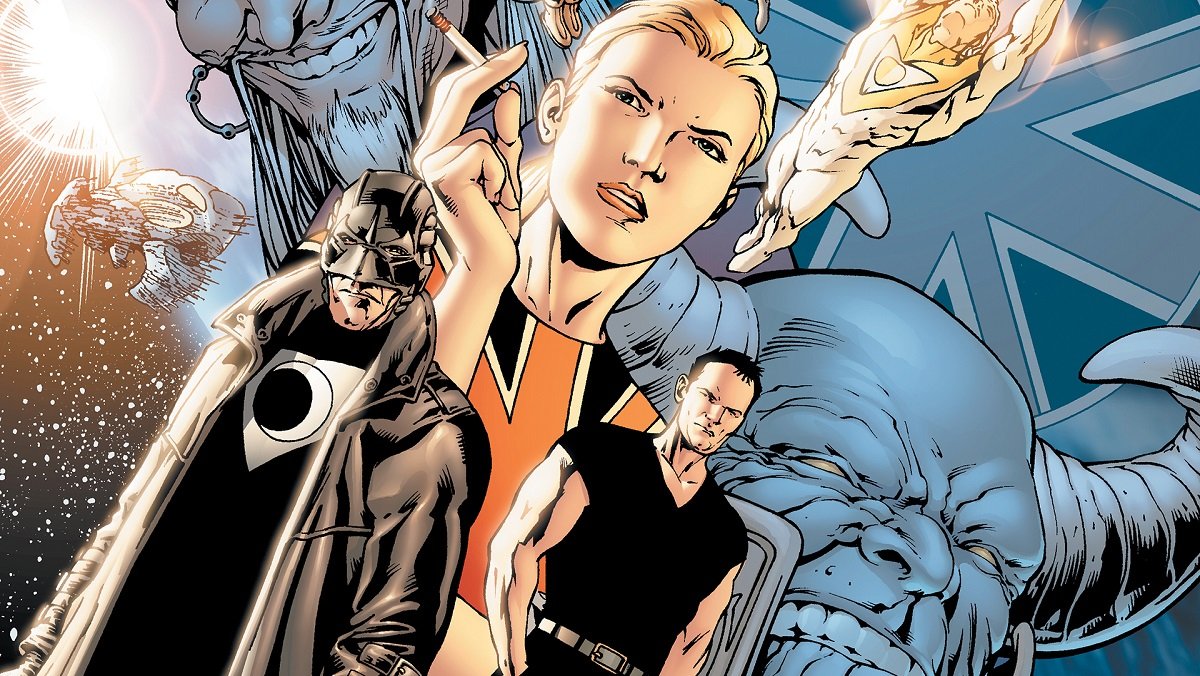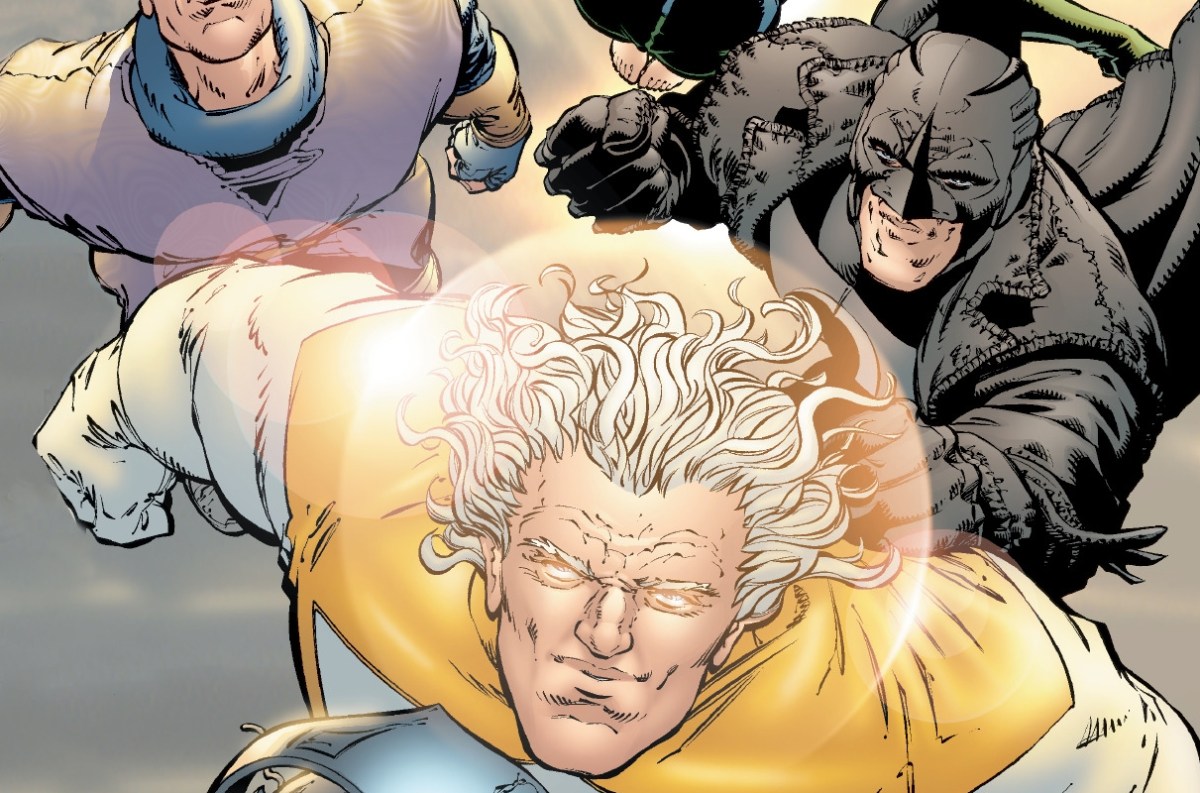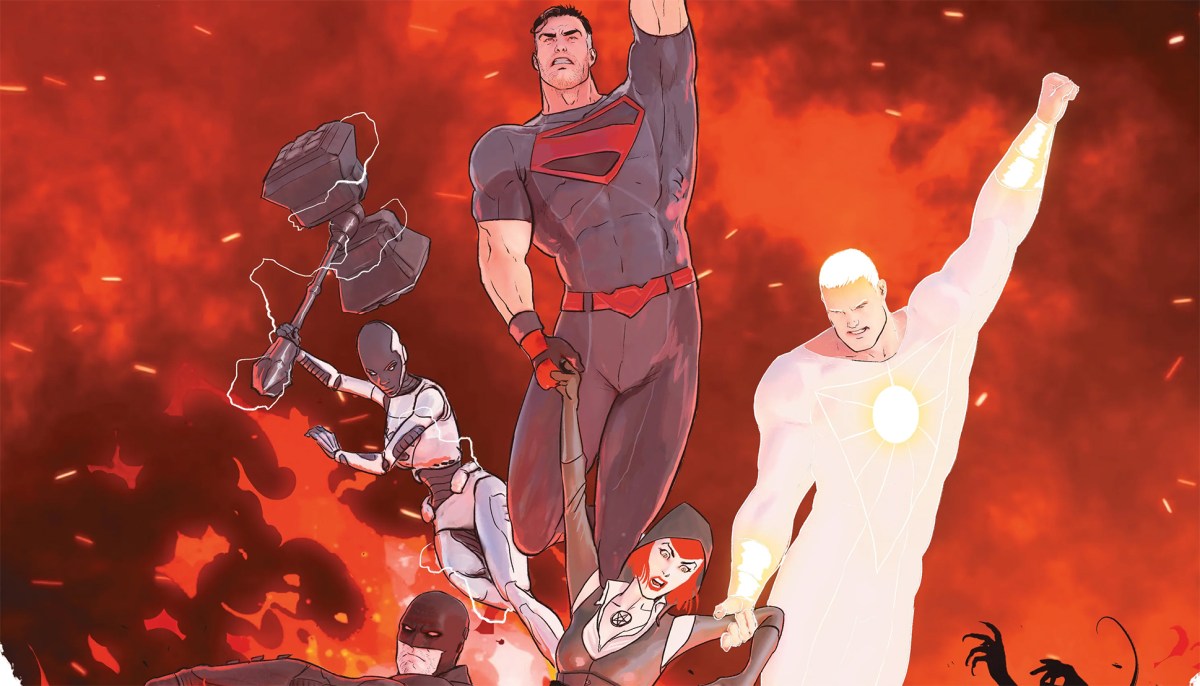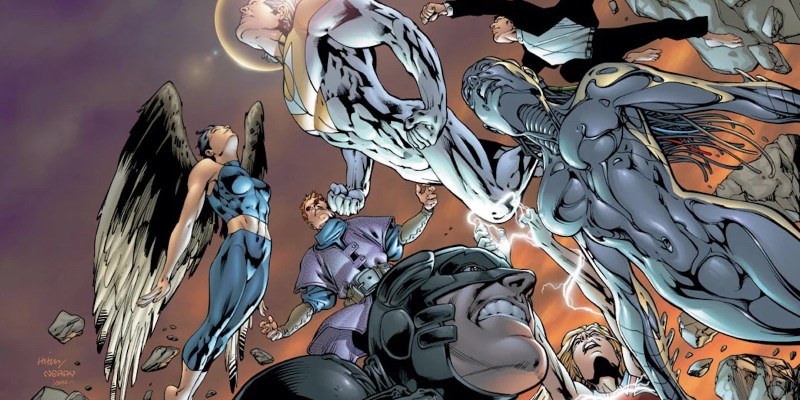When the clock struck midnight on January 1, 2000, Jenny Sparks died giving — for lack of a better term — God an electrically induced aneurysm. Pretty epic for the end of a four-issue comic arc, but that’s exactly what The Authority was. Epic. And James Gunn’s recent announcement that DC Studios will create a movie based on The Authority was shocking. Here is how he presented the Authority to DC moviegoers:
The Authority is a passion project of mine. It’s based on the marvelous WildStorm characters we are now bringing into the DCU and will interact with all of our primary DCU characters. The Authority are a group of superheroes who think the world is broken, and they want to fix it by any means necessary. I think it’s a very different look at superheroes.
And Gunn is right. The Authority is a very different look at superheroes. But maybe not the way people are expecting. The Authority is the culmination of about six years of stories. Readers were given a story that fundamentally changed comics.
And that lineage changed movies, too. In addition to the tonal shift, the scope, and the tight scripting, the presentation by artist Bryan Hitch and colorist Paul Neary cannot be over-praised. Wide panels made a $2 book feel like a cinematic experience, encapsulating all the momentum of a well-directed action movie with the infinite imagination and execution of an art team that were throwing 98 MPH fastballs every pitch.
While they’re a team of incredibly talented individuals, let’s talk about them a bit more conceptually for a second. The Authority were a postmodern deconstruction of the superhero genre, existing on the razor’s edge of the ‘90s “extreme” fad and a more buttoned-up millennium. They weren’t just a team of people; they were a vibe, a permeating coolness of a completely new paradigm. They were the “found out”’ to everyone else’s “****ing around.” They weren’t untouchable — in quite a few stories they took it on the chin — but their problem-solving and methodology was a shot in the arm for a medium that quite often finds itself keeping an eye on the past.

The Authority were the basis for the Ultimates, a version of the Avengers that was created for an imprint line of Marvel called “The Ultimate Universe.” The idea behind the Ultimate Universe was that it was the Marvel Universe starting in the year 2000. Instead of being fueled by Cold War paranoia and the widening scientific vernacular of the atomic age, it was Marvel by way of the digital age.
The Ultimates were the foundation for the early Marvel Cinematic Universe, even down to the costumes. That’s notable because Bryan Hitch, artist for the first 12 issues of The Authority, and Mark Millar, the writer for the next 12 issues, worked together to create the Ultimates. It wasn’t just a tonal mimic; it was the same creatives behind the two biggest Authority runs of all time.
Years later, not to be left on the sidelines, the DCEU was a reaction to the MCU. And this new slate of movies is a response to where the DCEU came up short. So The Authority has already changed movies, indirectly… Can it do it on purpose this time?
The original creative team only told three quick, four-issue arcs before handing the reins over the next decade to a rotating list of creators. WildStorm cranked out books for the sake of it, but the team of characters didn’t really have much of an identity, nor a steady creative team to give them any consistent voice or point of view. They were simply going through the motions, a cover song of what the comic used to be.

Their relevance was directly associated with the time period in which they were created, that magical balance of post-Cold War and Clinton-era economic optimism juxtaposed against Y2K trepidation and looming national security threats like the genocide in the Balkan states or the bombing of the USS Cole. They were comics’ harshest reality check, which is pretty impressive for a fictional team.
Over the last decade, DC has hoped the Authority lightning would strike a second (and third, and fourth) time, to varying degrees of success. For starters, the Authority were part of DC’s New 52 reboot, blending more with familiar DC history and characters like Martian Manhunter. This run has its moments but is ultimately pretty messy continuity-wise.
As part of an anniversary celebration in 2017, The Wild Storm was a modern reinterpretation of the biggest players from the publishing imprint and included the characters from both Stormwatch and Authority in new and interesting ways. It was told by key writer Warren Ellis and artist Jon Davis-Hunt.
Most recently, it’s a team founded by a Superman that was losing his powers. He needed to free the planet-sized ship Warworld from the control of its insane and violent dictator Mongul, so he founded a team to be worldbreakers. This is clearly the most integrated version of the team yet. The story was dope and helps set up a really fun and anticipated era of Superman, but it’s really not the same. An Authority team endorsed by Superman is a contradiction, but it’s one that has to be made in this new shared universe of WildStorm and DC properties.

The Authority might be too late. They changed comics, but other books took the baton and kept running with it. We saw the savagery of the Joker when he made a pencil disappear. We saw… well, a lot in The Boys that we probably weren’t expecting; a man exploded out of a dick for crying out loud. Thanos snapped half of existence away. Wolverine died.
Comic book media has already adapted the transgressive works inspired by the Authority, so what’s left for the Authority to do when you’ve already pushed past the boundaries they rewrote? How can you critique a genre that’s already psychoanalyzing itself on multiple levels across all mediums? It’s a tough act to pull off.
To do the comics justice, at least in spirit, you have to do something completely new that trivializes the status quo, not just something batshit and wild, and not just something that kowtows to a different hierarchy. They answer to no one; they’re the top of the food chain. They’re called the Authority for a reason.
They were the answer to superhero monotony at the turn of the century. Can they help save us from the fatigue we’re starting to feel at the movies? I can’t say for sure, but my money is on yes. The Authority’s Jenny Sparks — she killed God once.
